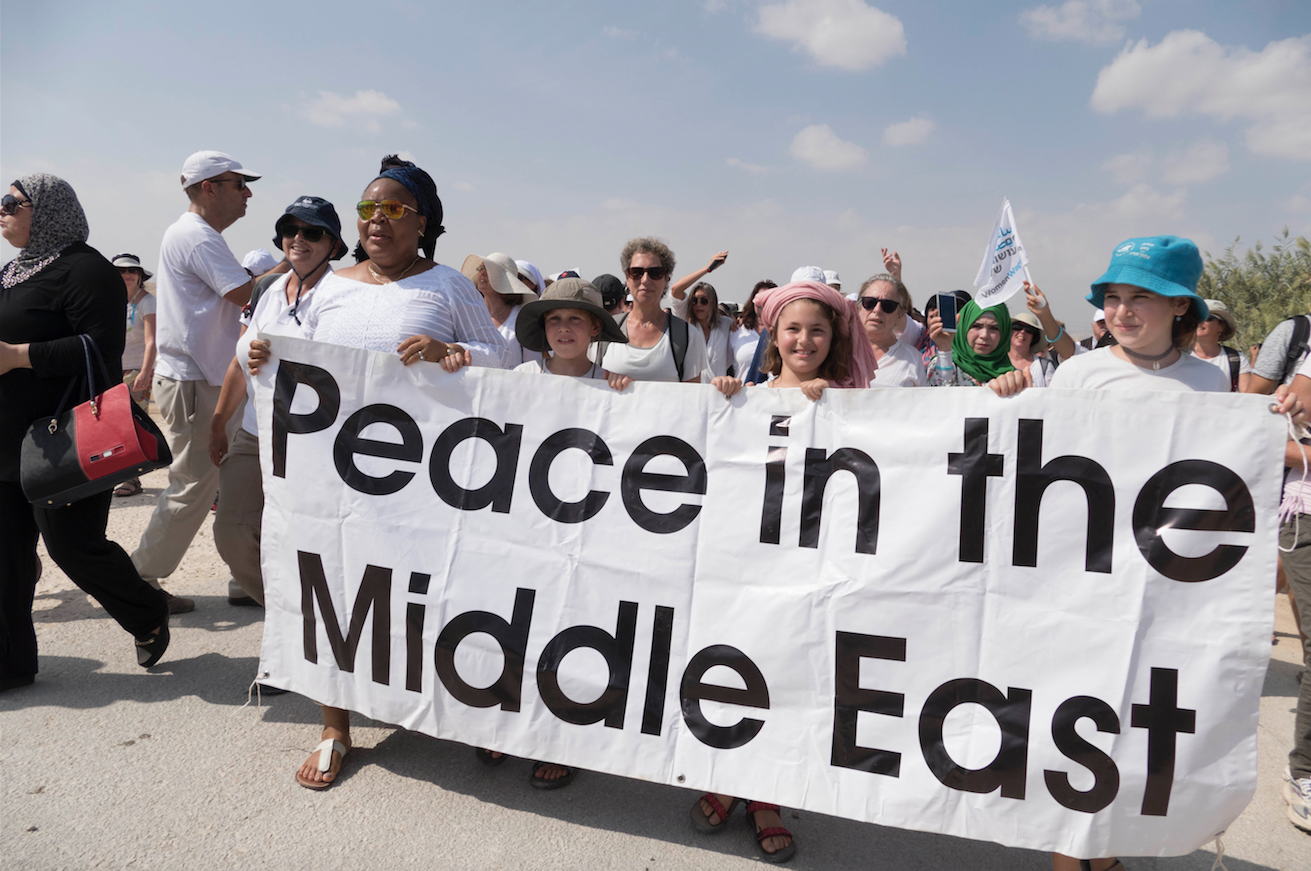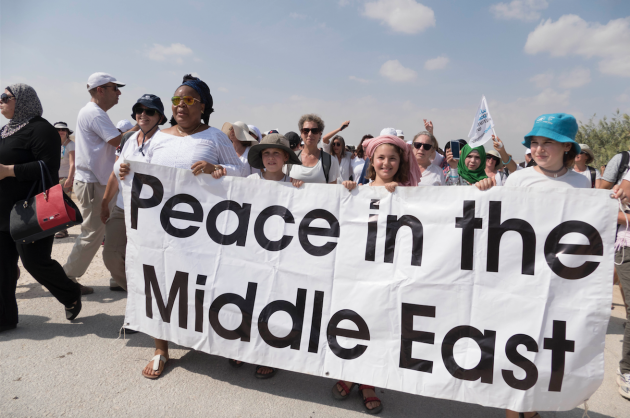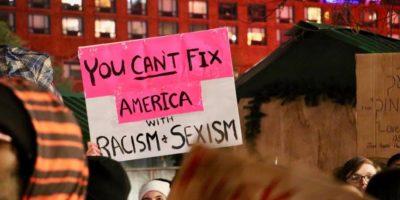
Marching for Change

Photo credit: Joan Roth
For two weeks this fall, hundreds of women and some men—Muslim and Jewish, Israeli and Arab and Druze—traversed Israel, north to south. They walked through the country, staging public events along the way and holding banners demanding that the leaders of the two sides of the Palestinian-Israeli conflict sit down at the negotiating table and come to a peace agreement. The group Women Wage Peace, organizers of the march, called it the March of Hope. At its finale at the Dead Sea, over 4,000 women held a joint Jewish-Muslim prayer for peace. That evening, more than 15,000 gathered outside the prime minister’s residence in Jerusalem calling for action.
As with other public demonstrations, there were many underlying ideologies. But one recurring theme was motherhood and its biological assumptions about women. Their lives as mothers and grandmothers, many women said, makes their drive for peace stronger. Against this backdrop, I wondered: Are the women of this movement ready to count the casualties experienced by their enemy-sisters the way they count their own?
Liberian Nobel Peace Prize Laureate Leymah Gbowee constantly reminded the crowds that this is precisely the kind of hard work that women need to be prepared to do if we are going to bring peace.
“Two women walked into a room,” recalled Gbowee, whose success mobilizing women to rally for peace in her Liberia after 14 years of bloody civil war earned her the Nobel. “I am here because my son died in a very terrible way,” the first woman said. “He was killed—by that woman’s nephew!” She pointed at the second woman, Gbowee recounted. “Not only that, her nephew chopped my son’s body into pieces. And I had to go around paying for each body part so that I could bury my son.” The room grew silent. “I came here today,” the woman told Gbowee, “so that no woman will ever have to endure the kind of pain that I experienced.”
Gbowee paused for a moment in her retelling. “I came today,” that second woman said, “because if I can help ease even a little bit of the pain that my nephew caused you, then it is worth it.” Gbowee leaned in to the podium, looked straight at the audience and said, “Peace is not easy. If you are not prepared for the hard work, stop right now.” The crowd cheered.
The drive for peace, said Knesset member Ksenia Svetlova, “should always coincide with our fight for women’s rights, because it is the same fight.” She is impassioned about promoting women’s equal representation in Israeli politics. The fear that women’s rights will become submerged in other struggles is expressed in Israel’s peace movement as it is in the U.S. post-election protests.
Palestinian President Mahmoud Abbas sent a representative to meet the group. There was no official response from Israeli Prime Minister Benjamin Netanyahu, and the march received little press attention, despite its size. Perhaps a more clearly articulated action message than just “peace” could have been a spur? The men officially charged with diplomacy are currently doing nothing to advance peace, while women who have almost no official power or influence are working among themselves to build bridges.
“Women are really great at making compromises, because we make them 24 hours a day,” Svetlova told a crowd. Her comment may bolster the idea that women are great negotiators, but it also reinforces the image of women as doormats. This is a movement of women with no official positions of power asking male leaders to do their jobs. Sound familiar?
And the real lesson from Leymah Gbowee? That we need a new way of looking at the other—hearing the other—both around the negotiating table and in people’s homes and hearts.
Elana Sztokman is a writer and feminist activist in Israel.



